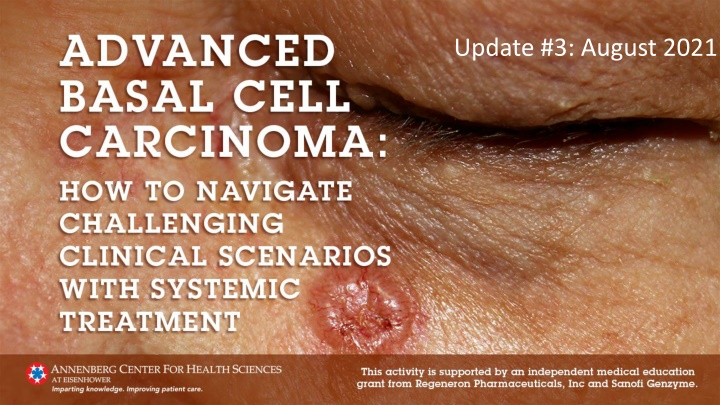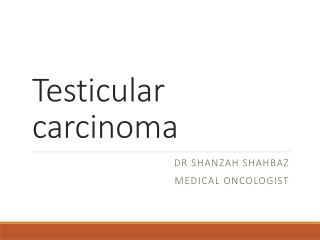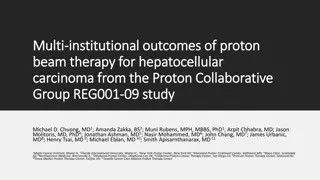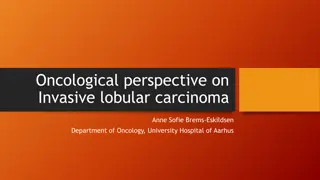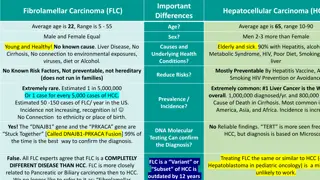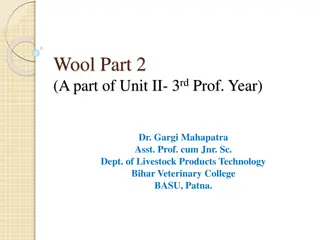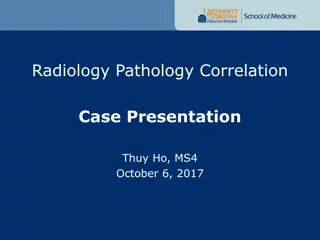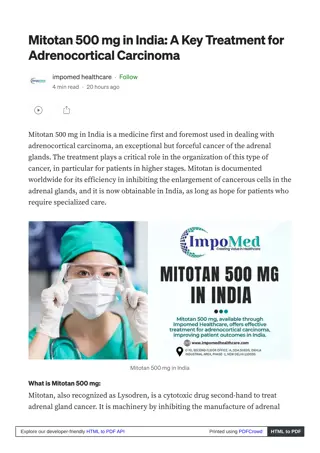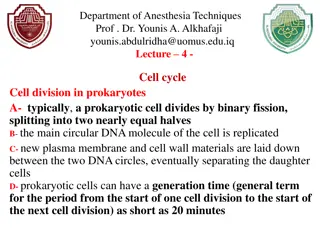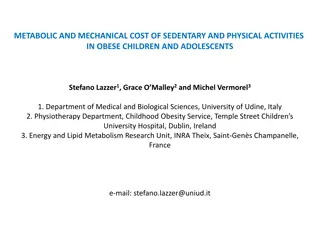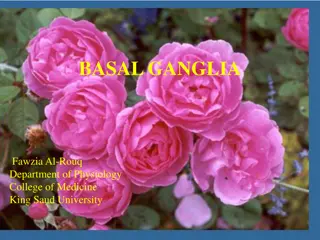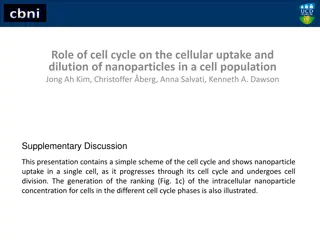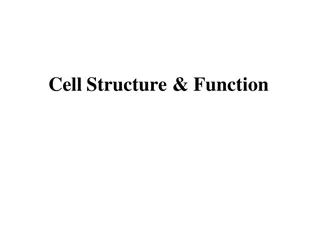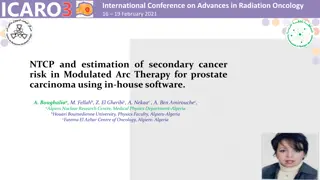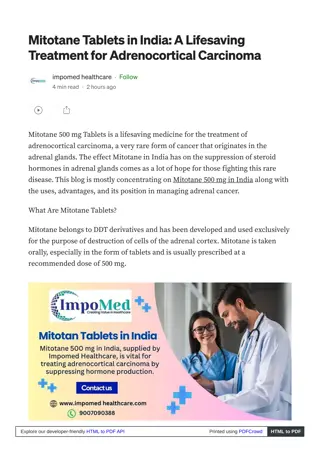Evolving Management of Locally Advanced Basal Cell Carcinoma
The management of locally advanced basal cell carcinoma is rapidly evolving, with new information published between June 1, 2021, and July 30, 2021. This update includes key publications and insights on the frequency, characteristics, and subsequent treatment of real-world patients who discontinue hedgehog inhibitors as first-line systemic treatment. The study assesses adult patients with advanced basal cell carcinoma discontinuing first-line treatment due to toxicity or disease progression, shedding light on treatment patterns and outcomes.
Uploaded on Feb 16, 2025 | 1 Views
Download Presentation

Please find below an Image/Link to download the presentation.
The content on the website is provided AS IS for your information and personal use only. It may not be sold, licensed, or shared on other websites without obtaining consent from the author.If you encounter any issues during the download, it is possible that the publisher has removed the file from their server.
You are allowed to download the files provided on this website for personal or commercial use, subject to the condition that they are used lawfully. All files are the property of their respective owners.
The content on the website is provided AS IS for your information and personal use only. It may not be sold, licensed, or shared on other websites without obtaining consent from the author.
E N D
Presentation Transcript
As in medicine generally, the management of patients with locally advanced basal cell carcinoma is rapidly evolving. To help clinicians keep abreast of new information, this is the third of 4 updates. This third update includes new information published between June 1, 2021, and July 30, 2021, or presented at the 2021 annual meeting of the American Society of Clinical Oncology with a focus on 3 key publications. Links to other publications of potential interest are also provided.
Frequency, characteristics, and subsequent treatment (Tx) of real-world patients (pts) who discontinue hedgehog inhibitors (HHIs) as first-line (1L) systemic Tx for advanced basal cell carcinoma (aBCC) Cowey CL, et al. Presented at: 2021 American Society of Clinical Oncology Annual Meeting, June 4-8, 2021.
Frequency, characteristics, and subsequent treatment (Tx) of real-world patients (pts) who discontinue hedgehog inhibitors (HHIs) as first-line (1L) systemic Tx for advanced basal cell carcinoma (aBCC) Goal: To assess the frequency, characteristics, and subsequent treatment of adult patients with advanced basal cell carcinoma (aBCC) discontinuing first-line treatment due to toxicity or disease progression Retrospective cohort analysis of The US Oncology Network, a community-based network of >450 oncology clinics Adults with aBCC not treated for another primary malignancy in the past 3 years who discontinued first-line hedgehog inhibitor (HHI) therapy due to documented toxicity or disease progression without a complete response (CR) who subsequently initiated second-line systemic treatment or not o Patients who did not initiate second-line therapy were followed for 90 days after HHI discontinuation and excluded those who underwent surgery or radiation Cowey CL, et al. Presented at: 2021 American Society of Clinical Oncology Annual Meeting, June 4-8, 2021.
Frequency, characteristics, and subsequent treatment (Tx) of real-world patients (pts) who discontinue hedgehog inhibitors (HHIs) as first-line (1L) systemic Tx for advanced basal cell carcinoma (aBCC) (cont) 138 adults received HHI therapy with 115 (83.3%) receiving HHI therapy as first line o 73/115 (63.5%) discontinued HHI therapy 37/73 (50.7%) discontinued HHI therapy due to toxicity or disease progression without CR 4/37 (10.8%) initiated second-line systemic treatment within a median of 75 days o There was no standard of care among adults with aBCC who experienced HHI treatment failure, with only a minority initiating second-line treatment Cowey CL, et al. Presented at: 2021 American Society of Clinical Oncology Annual Meeting, June 4-8, 2021.
Budget impact (BI) analysis of cemiplimab-rwlc for advanced basal cell carcinoma (BCC) after hedgehog inhibitor (HHI) therapy in the United States Paul E, et al. Presented at: 2021 American Society of Clinical Oncology Annual Meeting, June 4-8, 2021.
Budget impact (BI) analysis of cemiplimab-rwlc for advanced basal cell carcinoma (BCC) after hedgehog inhibitor (HHI) therapy in the United States Goal: To assess the budget impact of introducing cemiplimab in the US from a payer s perspective A decision analytic model was developed using market research to determine reference case market shares, as well as the predicted uptake of cemiplimab o Changes in market distribution of systemic therapy and best supportive care post- cemiplimab launch were estimated Treatment costs were sourced from the ProspectoRx drug pricing database Total costs were calculated in 2020 US dollars to include costs related to treatment, disease monitoring, and mitigation of grade 3/4 adverse events Paul E, et al. Presented at: 2021 American Society of Clinical Oncology Annual Meeting, June 4-8, 2021.
Budget impact (BI) analysis of cemiplimab-rwlc for advanced basal cell carcinoma (BCC) after hedgehog inhibitor (HHI) therapy in the United States (cont) In a hypothetical US healthcare plan of 1 million members, 32 patients with advanced BCC would be eligible for cemiplimab, resulting in an additional cost of $0.12 per member per month over 3 years Payer s 3-year budget would increase from $978,955 to $5,487,507 The proportion of patients receiving systemic therapy rather than best supportive care was estimated to increase from 11% in 2020 to 50% in 2023 Cemiplimab market share was projected to increase by 41% by year 2023 Paul E, et al. Presented at: 2021 American Society of Clinical Oncology Annual Meeting, June 4-8, 2021.
Health-related quality of life (HRQoL) in patients (pts) with locally advanced basal cell carcinoma (laBCC) treated with cemiplimab: Analysis of a phase II, open-label clinical trial Stratigos AJ, et al. Presented at: 2021 American Society of Clinical Oncology Annual Meeting, June 4-8, 2021.
Health-related quality of life (HRQoL) in patients (pts) with locally advanced basal cell carcinoma (laBCC) treated with cemiplimab: Analysis of a phase II, open-label clinical trial Goal: To assess health-related quality of life (HRQoL) in patients who were intolerant of or progressed on treatment with hedgehog inhibitor therapy (HHI) Adults with locally advanced basal cell carcinoma (laBCC) and ECOG performance status 1 were treated with cemiplimab 350 mg every 3 weeks for 9 cycles At baseline, adults had moderate to high levels of function with low symptom burden Stratigos AJ, et al. Presented at: 2021 American Society of Clinical Oncology Annual Meeting, June 4-8, 2021.
Health-related quality of life (HRQoL) in patients (pts) with locally advanced basal cell carcinoma (laBCC) treated with cemiplimab: Analysis of a phase II, open-label clinical trial (cont) Global Health Status/quality of life was stable during treatment with cemiplimab except for clinically meaningful worsening of fatigue Responder analysis showed clinically meaningful improvement or stability at cycles 2 and 9 on all EORTC QLQ-C30 functioning scales and the key symptom of pain but not fatigue o For example, at cycles 2 and 9, respectively, clinically meaningful improvement or stability was observed in: 77% and 78% with respect to physical functioning 81% and 67% with respect to emotional functioning 75% and 78% with respect to pain level 61% and 44% with respect to fatigue level Stratigos AJ, et al. Presented at: 2021 American Society of Clinical Oncology Annual Meeting, June 4-8, 2021.
Health-related quality of life (HRQoL) in patients (pts) with locally advanced basal cell carcinoma (laBCC) treated with cemiplimab: Analysis of a phase II, open-label clinical trial (cont) Overall, the majority of adults with laBCC treated with cemiplimab reported clinically meaningful improvement or stability in Global Health Status/quality of life and functional status while maintaining a low symptom burden except for fatigue Stratigos AJ, et al. Presented at: 2021 American Society of Clinical Oncology Annual Meeting, June 4-8, 2021.
Other Publications De Giorgi V, et al. Lasting response after discontinuation of cemiplimab in a patient with locally advanced basal cell carcinoma. Clin Exp Dermatol. 2021;doi:10.1111/ced.14804. Smith SDB, et al. Xanthomatous dermal changes in a patient with locally advanced basal cell carcinoma treated using vismodegib. Am J Dermatopathol. 2021;43(8):585-587.
